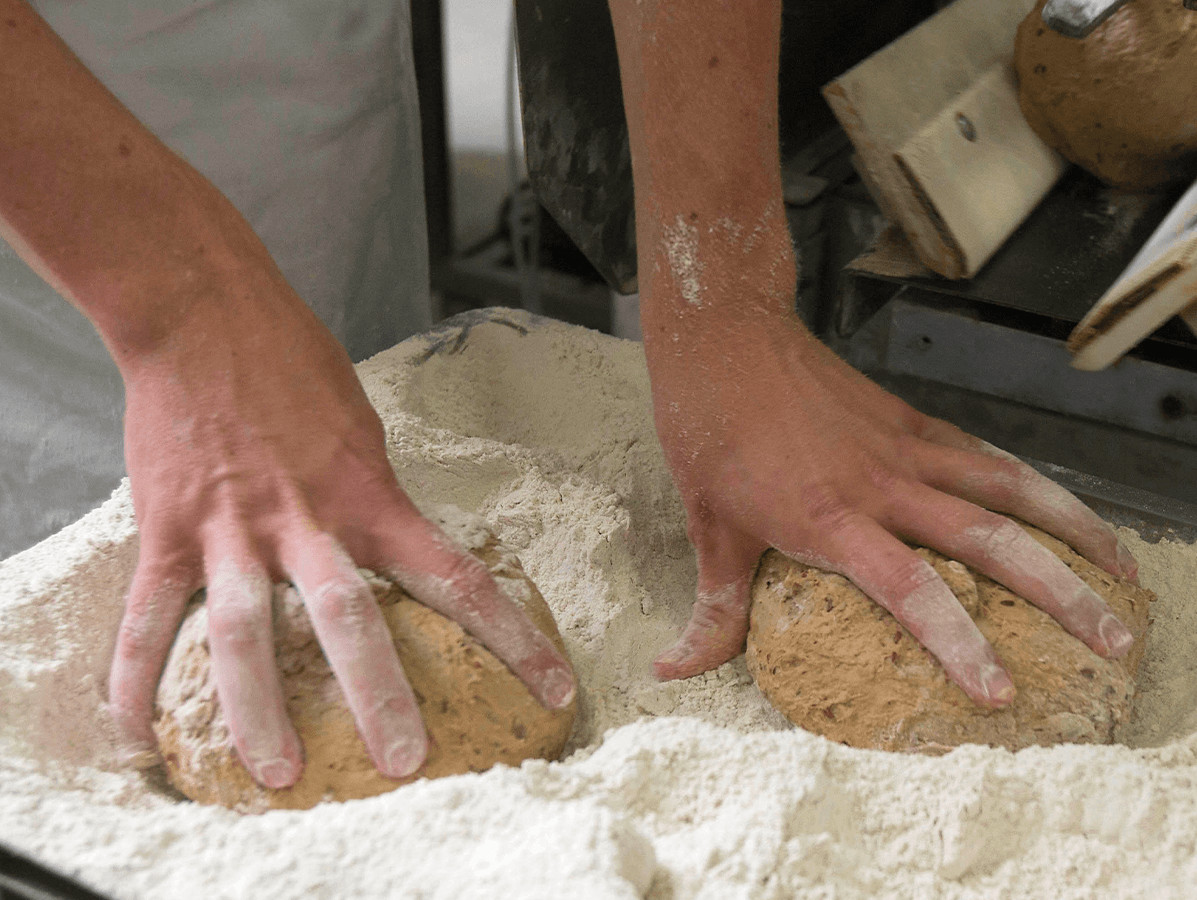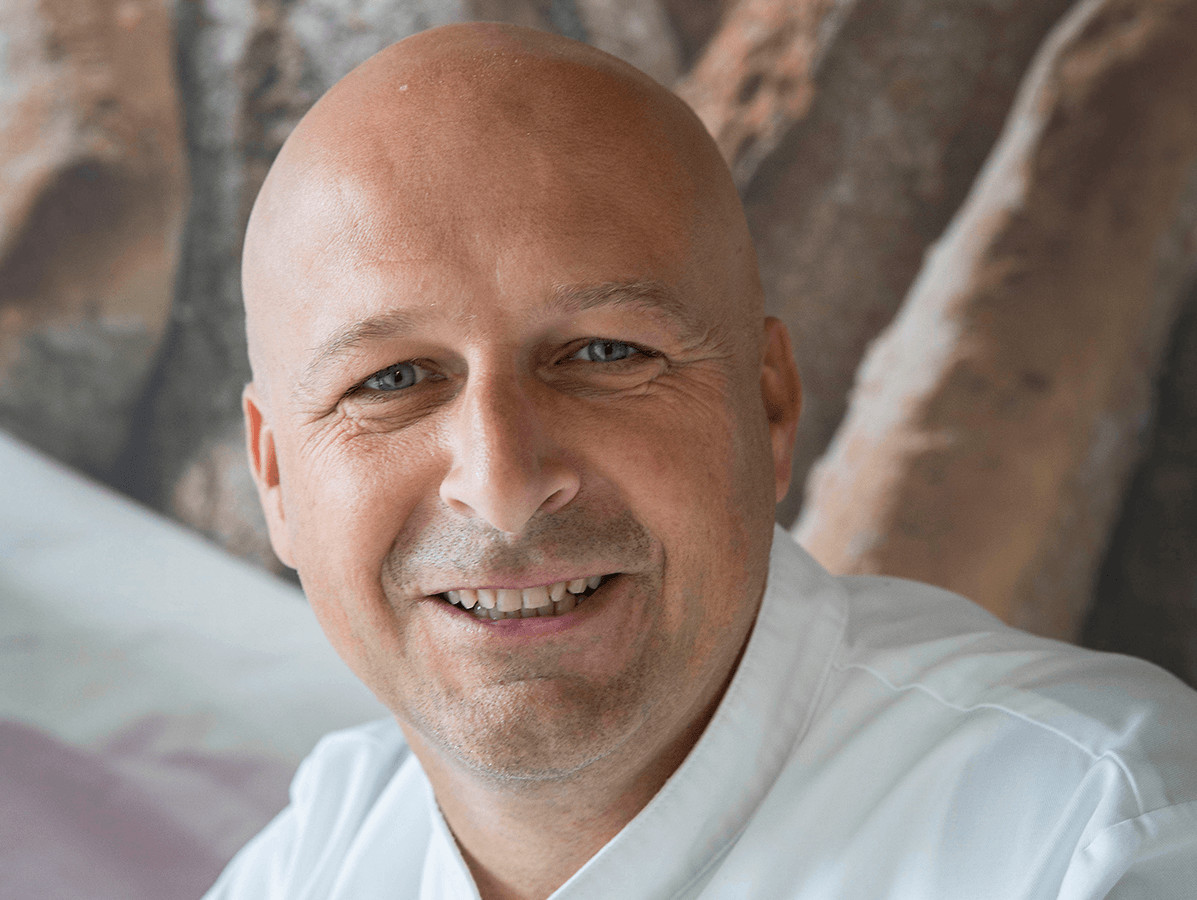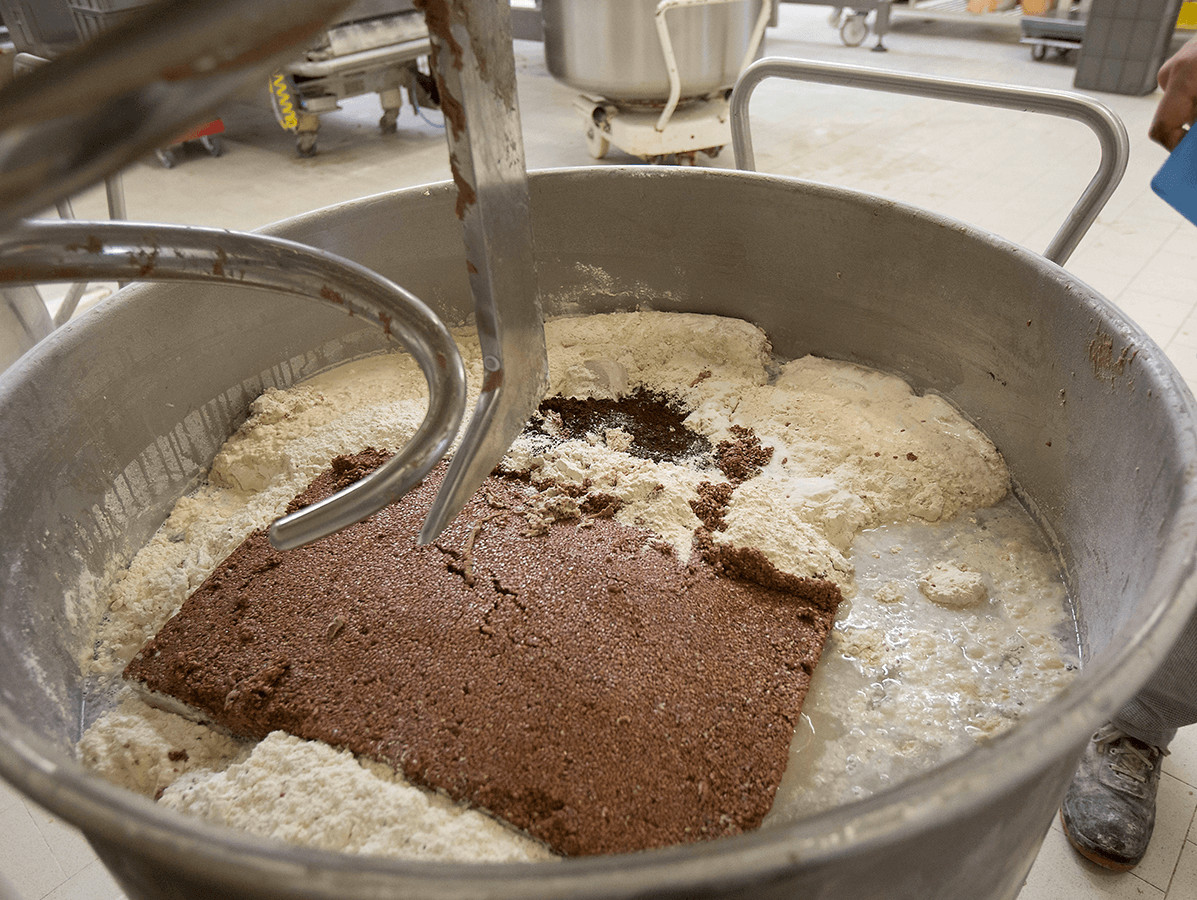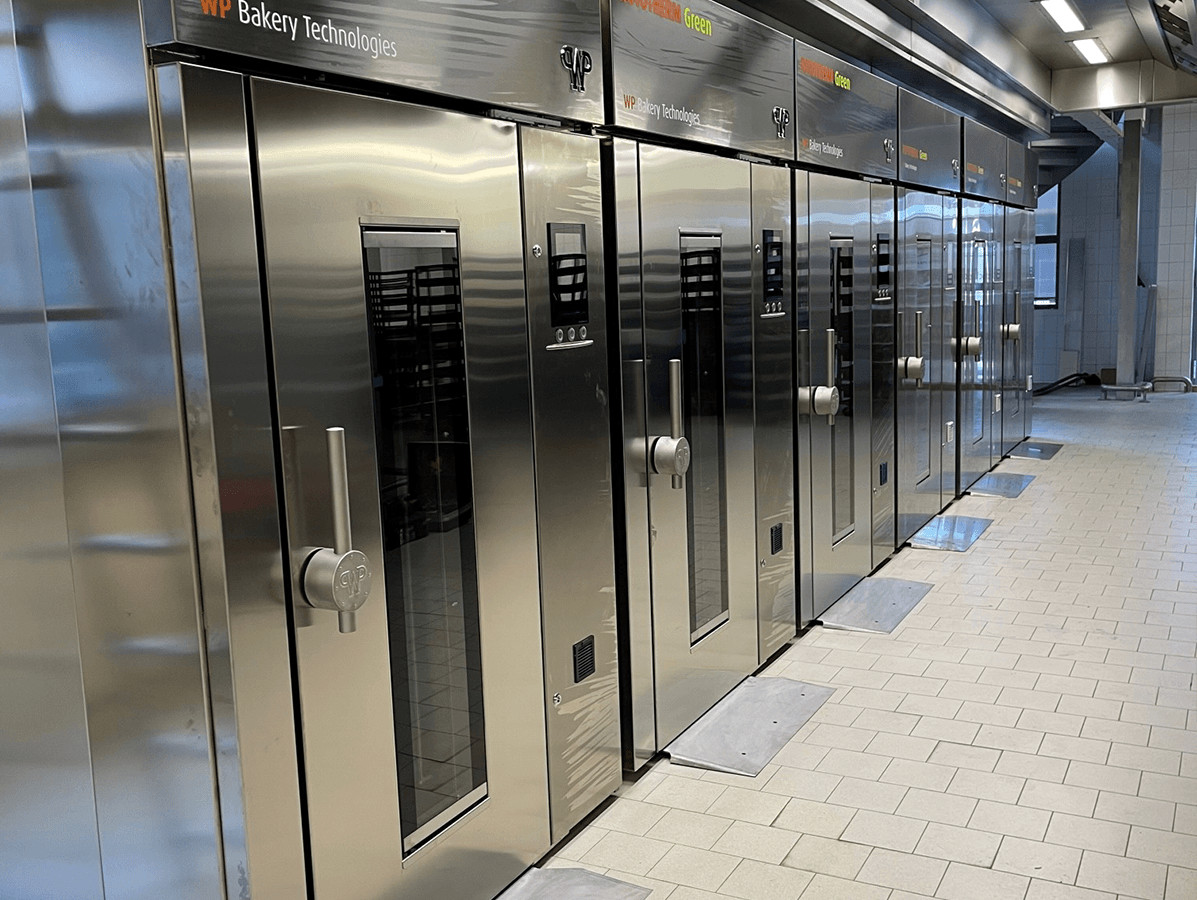
The bakery of Carl Siegert is located in Harmelen. Here, a wide variety of bread and buns are made according to traditional methods, and baked using the latest techniques. Sustainability and innovation; that is what it is all about.
Carl Siegert is a baker in heart and soul and already the sixth generation in the family business. For his bread, he uses almost exclusively organic, sustainably cultivated ingredients that can be traced back to their origins. "We obtain as much of our grain as possible from the Netherlands, but the quality of the wheat is key. Due to our maritime climate, the quality is sometimes insufficient; in such cases, we obtain the raw materials from the South of France. Our aim is to minimise food miles throughout the organisation. Our organic butter, for example, comes from Weerribben Zuivel.
For the interview, we are seated at a long robust wooden table in the atmospheric bakery café that he built at the heart of his business. Adjacent to the café, there is a modern space for workshops. A special detail: parts of the old family home have been incorporated into the walls. History and future blend seamlessly.
Quality, taste, aroma and structure - that is what Siegert bread is all about. An important element is the company's own rye-based sourdough culture, which is used in the dough. " This increases the rising time - at least 15 hours. As a result, the bread gets a unique and distinctive taste, a tender crumb and longer shelf life", says Carl proudly. For his light wholemeal, multigrain and brown bread specialities, he has developed his own organic five-grain flour from wholemeal wheat, rye, oats, spelt and corn. However, not all the bread is organic. "That has to do with the quality," he explains. "The protein in organic wheat, for example, is not strong enough to handle the amount of butter in our brioche.

" The reason I once switched to organic flour was out of a need for proof," he laughs. "My girlfriend, now my wife, ate organic. As I ate that bread, I thought, 'I can do this better!' In those days, there was not so much variety. You could eat white and brown bread, a currant bun and a baguette. In the past 25 years, there has been an enormous increase in the variety of bread. I have been able to build this company on that trend." Some examples of special bread concepts are the Molensteenbreekbrood, the Bread Pie, the Echte broodje aap and the Engadiner landbread. The urge to prove remained: in 2011 he won the Maastrichter Star, a year later he won 'De Koks! Innovation Trophy' and in 2015 the Woerden Sustainability Award. Innovating and investing in both the product range and sustainability are still the guiding principles in his entrepreneurship.
The Woerden Sustainability Award was partly due to the huge number of solar panels on the roof of the company. There are now 980 of them: good for about 40% of the total energy requirement. "They provide energy for the shock freezers in particular, and help to reduce the peak in our power demand. A funny thing is that from the moment we started generating our own electricity, we became more aware of our energy consumption. It's all in the little things, too. Thanks to motion detector switches, the lights go off in rooms where nobody is present." To save energy, the building is well insulated, there is LED lighting everywhere and the after-heat from the compressors is used for the heated floors. "We try to invest a little bit every year in sustainability," says Carl. "We do opt for innovations with a reasonable payback period, for example seven years or so."

When I took over my father's bakery over 25 years ago, we still had old ovens. I replaced them after two years. The new ovens consumed so much less gas that I was able to use the savings to pay the interest and loan. That's when the penny dropped. For the three new Rototherm Green energy-efficient electric ovens from WP Bakery Technologies that were installed at the end of 2021, the situation is somewhat different. "Ovens are bought for 20 years. With the current energy transition, it is of course not smart to buy a gas oven again, although natural gas is by far cheaper. On the other hand, the tensions on the gas market are rising. It's a strange market; in Belgium and Germany you get a subsidy if you switch to gas. We have a great gas network in the Netherlands, but we have to electrify. There is no clarity within the European Union.
A lot of food is wasted in the hotel and catering industry. Bread is the most wasted food. That is why Gastronomixs and Carl Siegert Bakery have joined forces to help chefs combat this waste with eight innovative preparations, under the motto: 'Old bread as new ingredient'. Another special collaboration is that between Frank van Eerd (De Bisschopsmolen), Jan Paul Rutten (Gulpener beer brewery) and Carl Siegert. Together, they designed the 'Puurzaam 1891 Bol'. This bread is made with brewer's spent grain, a residue from the brewing process. "The carbohydrates are extracted from the brewers' grains during that process. The use of this residual flow not only makes bread tasty, but also tender and rich in fibre and protein. For our 'Gigabol Potato de frites', we also use cutting residues from the traditional chips factory FrietHoes. We try to process as many residual streams as possible. Our own residue goes to a farmer. The sustainable working method makes it easier for our customers, especially catering businesses, to join 'Green Key'. This is an international quality mark for sustainable businesses in the tourism and recreation sector."

Because of the developments and measures surrounding Corona, Carl occasionally has the feeling that they are becoming 'a beach club, a seasonal business': "Eight months out of the year we are extremely busy and can hardly manage. Then the virus strikes again, there's a lockdown and everything falls apart again. What happens next? We cannot look into the future, but it is certain that we will not stand still. We want to work more during the day, with a clear start and end to the production day. I want to reduce the peak demand for energy that this creates. For example, by investing in converters and in a power pack to store generated solar energy when we work less during the weekends. In the near future, we are going to examine whether heating elements of the three new electric ovens can be switched off, based on baking and measurement results. Yes, saving money plays an important role, of course. But sustainable business practice is also something that I find self-evident. Our resources are not inexhaustible, we have to use them wisely. We borrow the world from our children, so let's be aware of that.
Source: Vakblad Voedingsindustrie 2022